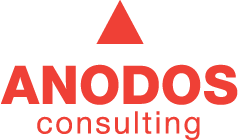Quality
In order for a business to be truly efficient and effective in its object, it must manage the way it operates through a System. This System ensures that corporate processes are handled in the most efficient way, leading to savings of resources, energy and time, better and clearer division of labor, definition of roles and responsibilities, maximizing efficiency and the best possible utilization of business dynamics of each company.
At ANODOS Group we offer consulting services for the development of quality management systems in accordance with all internationally recognized standards. Together we ensure that nothing important is omitted and that the corporate processes are as they should be: clear, simple, and most importantly? Effective.
In order for a business to be truly efficient and effective in its object, it must manage the way it operates through a System.
The development and implementation of HACCP is a legislative requirement. With the HACCP system we anticipate the risks that may develop for food handling. This way we can define the points where the probability of occurrence of the risk is maximized. Finally, with the HACCP system we can identify the critical limits, as well as develop corrective actions for their implementation.
ISO 22000 is a Food Safety Management System implemented by food production, handling and storage companies to ensure that they provide their customers with safe food to eat. ISO 22000 defines companies directly or indirectly involved in the food chain from primary production, harvesting and feed production to processing, food industry, wholesale, retail, mass catering, storage and distribution, as well as companies producing equipment, packaging materials, cleaning and disinfection materials, additives and components.
FSSC 22000 is a management system with many similarities with the food safety management system ISO 22000:2018. It concerns all companies that produce, package, process and distribute food. The FSSC 22000 standard is recognized by the Global Food Safety Initiative (GFSI).
ΤThe BRC is a food safety standard developed in 1998 by the UK Retail Association. The BRC standard is divided into three categories:
- BRC Global Standard for Food Safety (Για παραγωγή προϊόντων)
- BRC Global Standard for Storage and Distribution
- BRC Global Standard for Packaging and Packaging Material
The IFS standard was developed by the German Retail Federation (HDE), France (FCD) and Italy (CONAD). The aim of IFS is to create a food safety system with uniform control procedures, which need mutual acceptance in order to create a system of high quality transparency internationally.
The IFS standard was developed by the German Retail Federation (HDE), France (FCD) and Italy (CONAD). The aim of IFS is to create a food safety system with uniform control procedures, which need mutual acceptance in order to create a system of high quality transparency internationally.
- 1ο επίπεδο – Food Safety Fundamentals : Το πρώτο επίπεδο αποτελείται από τα προαπαιτούμενα προγράμματα της ασφάλειας των τροφίμων καθώς και την τήρηση των οδηγών καλών πρακτικών.
- 2ο επίπεδο – HACCP- based Food Safety : Το δεύτερο επίπεδο αποτελείται από τις απαιτήσεις των Προαπαιτούμενων (1ο επίπεδο) συμπεριλαμβανομένου και του σχεδίου ανάλυσης επικινδυνότητας της μελέτης HACCP
- 3ο Επίπεδο HACCP- based Food Quality: Το τρίτο επίπεδο αποτελεί ένα ολοκληρωμένο σύστημα ασφάλειας τροφίμων με πλήρως ανεπτυγμένη την μελέτη HACCP
KOSHER certification refers to foods intended for the Jewish diet. The production methodology, the raw materials, as well as the packaging of the food, follow special rules that come from the Bible and the Jewish tradition.
Halal Certification refers to food products that comply with the rules of Islamic Sharia. Requires specialized systems of hygiene, as well as traceability of food, starting from the plot and ending at the table of consumers. In Halal certification everything is important, even the way of death of the animal that is going to be led to the slaughter as well as the method of standardization, packaging etc.
ISO 9001 is the international standard for Quality. The standard sets out the requirements according to which a business must operate in order for the final product and / or service to be judged satisfactorily by both its customers and other stakeholders.
International Standard ISO 14001 sets out the requirements for the development and implementation of an Environmental Management System (EMS). Through a systematic approach, an organization recognizes the impact of its activities on the environment and sets goals, objectives and programs to monitor and reduce these impacts. By implementing an EMS, the organization sets the framework within which it can continuously improve its performance.
ISO 27001 is the standard setting for the requirements of an Information Security Management System, in order to ensure that the company has established and implements adequate and appropriate controls related to the confidentiality, integrity and availability of information to be adequately protected. the information and data of the “stakeholders”. Stakeholders can be customers, other companies, staff, partners, but also society at large.
ISO 45001 is an ISO standard for occupational health and safety management systems, published in March 2018. The goal of ISO 45001 is to reduce occupational injuries and illnesses, including the promotion and protection of physical and mental health.
GLOBAL G.A.P. is an agricultural security program, which translates consumer demands into good agricultural practice. It is a model for farm management practice created in the late 1990s by various European supermarket chains and their main suppliers. It is now the most widespread farm certification system in the world.
ISO 22005: 2007 is an international standard that describes the principles and requirements for the design and installation of a traceability system in food and feed businesses. It is an important tool for organizing and managing the production process that increases efficiency and ensures the quality of products produced.
The SYNERGY 22000 Standard is a set of two complementary standards, allowing the development of a reliable Food Safety Management System, complying with the requirements of the GFSI (Global Food Safety Initiative) and based on:
- ISO 22000: Food Safety Management Systems – Requirements for food chain organizations
- PRP 22000: Food Safety Management Systems – Requirements for Prerequisite Programs (PRPs) for Food Chain Organizations
- ISO TS 22002-1: Technical Specification / Prerequisite Food Safety Programs.
CE certification as it has been called since 1993 (according to Directive 93/68 / EEC) (DECISION No 768/2008 / EC), formerly called EC certification, is a mandatory certification for products placed on the market in the European Economic Area ( European Economic Area – EEA). Με την επικόλληση του σήματος CE πάνω σε ένα προϊόν, ο κατασκευαστής δηλώνει πως το προϊόν συμμορφώνεται με τις βασικές απαιτήσεις των εφαρμόσιμων οδηγιών της Ευρωπαϊκής Κοινότητας (ΕΚ). The same applies to products manufactured outside the European Community but placed on the market.


